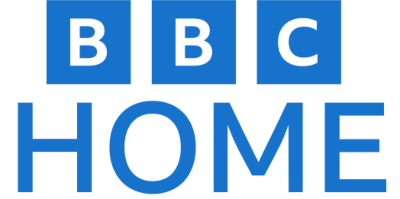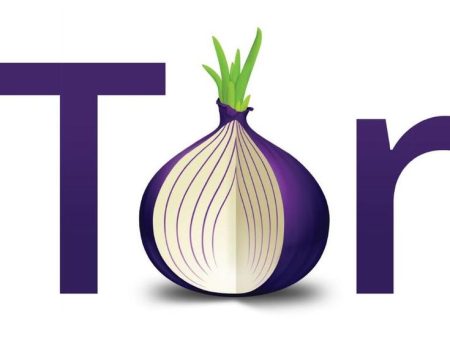The independent publishing revolution has democratized authorship, allowing countless voices to find their way to readers without traditional gatekeepers. However, this freedom comes with a significant responsibility: marketing. For indie writers in 2025, a brilliant book marketing service is just the starting gun; the race to reader discovery demands proactive, smart, and often relentless marketing. Here’s a breakdown of effective strategies to get your self-published book noticed.
1. Build Your Author Platform – Your Digital Foundation
This isn’t just a suggestion; it’s a non-negotiable. Your author platform is your online presence, your brand, and your direct connection to readers. Start building it before your book is published.
- Professional Author Website: This is your digital home base. It needs to be clean, mobile-friendly, and include:
- A compelling author bio and professional headshot: Let your personality shine through, but maintain a professional image.
- Dedicated book pages: Each of your books should have its own page with an irresistible description, the cover image, and clear “Buy Now” links to all major retailers (Amazon, Kobo, Apple Books, Google Play, etc.).
- A blog (optional but recommended): Share insights into your writing process, discuss themes from your book, or provide valuable content related to your genre. This helps with SEO and shows expertise.
- Your Media Kit: Essential for reviewers, podcasters, and event organizers. Include high-res cover images, author photos, bios (short and long), and press releases.
- The Power of the Email List: Your email list is your most valuable asset, giving you direct access to your most engaged readers, bypassing unpredictable social media algorithms.
- Offer a “Reader Magnet”: Give away something valuable in exchange for sign-ups (e.g., a free short story, a bonus chapter, a character guide, a deleted scene, or a useful checklist for non-fiction).
- Regular, Valued Communication: Send newsletters with updates, exclusive content, writing insights, and early access to news. Don’t just blast sales links.
2. Master Online Discoverability (SEO for Books)
Think like a reader searching for their next favorite book.
- Keyword Research: Identify words and phrases readers use to find books like yours. Tools like Publisher Rocket (for Amazon) can be invaluable. Weave these keywords naturally into your book’s title (if applicable), subtitle, description, and the backend metadata when you upload your book.
- Strategic Categories: Choose the most relevant and often less competitive categories on retail platforms to improve your book’s visibility.
- Compelling Book Description/Blurb: This is your primary sales copy. It needs to hook readers immediately, clearly convey the genre and stakes, and make them want to read more. Craft multiple versions for A/B testing.
- Professional Cover Design: This cannot be stressed enough. Your cover is your primary marketing tool. It must be high-quality, genre-appropriate, and stand out in a thumbnail size. Invest in a professional designer – it’s worth every penny.
- Professional Editing & Formatting: Nothing screams “amateur” faster than typos or wonky formatting. Professional editing and clean interior formatting are non-negotiables for building reader trust and positive reviews.
3. Harness the Power of Social Media (Strategically)
Social media is about building community, not just shouting sales messages.
- Choose Wisely: Don’t try to be on every platform. Focus on 1-2 where your target readers are most active.
- TikTok (#BookTok): Exploding for YA, fantasy, romance, and indie authors. Short, engaging videos about your writing journey, book themes, character insights, or reacting to bookish trends can go viral.
- Instagram (#Bookstagram): Visual platform. Share aesthetically pleasing photos of your book, your writing space, mood boards for your stories, and use Reels for short, engaging video content.
- Facebook Groups: Participate in genre-specific reader groups. Be a genuine member, offer value, and only promote when appropriate and allowed. Create your own author page and consider a private “reader group” for your most loyal fans.
- Goodreads: Engage with readers, track reviews, and run Goodreads Giveaways to generate buzz.
- Content Mix: Vary your content. Aim for the 80/20 rule: 80% engaging, valuable, or personal content; 20% direct promotion.
- Share behind-the-scenes glimpses of your writing.
- Ask questions, run polls, and encourage interaction.
- Share snippets, quotes, or character profiles from your book with eye-catching visuals.
- Repost positive reviews (with permission).
- Use trending audio and formats where appropriate.
4. Cultivate Reviews & Social Proof
Reviews are crucial for credibility and driving sales.
- Advance Reader Copies (ARCs): Distribute ARCs to early readers, book bloggers, professional reviewers, and “book influencers” before your launch. Platforms like NetGalley or BookSirens can help connect you with reviewers (often for a fee).
- Launch Team: Assemble a dedicated team of fans who will help promote your book and leave reviews on launch day.
- Polite Calls to Action: Include a polite request for reviews at the end of your book, directing readers to Amazon or Goodreads.
- Showcase Reviews: Feature positive review snippets on your website, social media, and marketing materials.
5. Invest in Targeted Paid Advertising (When Ready)
Once your book is polished and generating some organic interest, targeted ads can scale your reach.
- Amazon Ads (AMS): Highly effective for reaching readers already on Amazon looking for books. Target by keywords, categories, and competitor ASINs (books similar to yours). Start small, test, and optimize.
- Meta Ads (Facebook/Instagram): Powerful for reaching specific demographics and interest groups. Great for building awareness and driving traffic to your book’s sales page or your email list.
- BookBub Featured Deals: Highly competitive, but if accepted, a BookBub Featured Deal can provide an enormous surge in sales and visibility, often requiring a deep discount on your book.
6. Network & Collaborate
The indie author community is incredibly supportive.
- Connect with Other Authors: Reach out to authors in your genre for cross-promotions, newsletter swaps, joint giveaways, or co-hosted virtual events.
- Guest Blogging & Podcasts: Pitch guest posts to relevant blogs or offer to be interviewed on podcasts that cater to your target audience.
- Attend Virtual & Local Events: Participate in online author conferences, virtual book fairs, or local literary events to network and connect with readers face-to-face.
7. The Long Game: Persistence & Analytics
Book marketing is a marathon, not a sprint.
- Consistency: Regularly update your website, post on social media, and send out newsletters.
- Analyze Data: Pay attention to your sales data, website analytics, and social media insights. What’s working? What isn’t? Adjust your strategy accordingly.
- Adaptability: The publishing landscape, especially in self-publishing, is constantly evolving. Be willing to experiment with new platforms, content formats, and marketing tools.
By embracing these comprehensive book marketing tips, indie writers in 2025 can transform their passion project into a thriving author career, connecting their stories with the eager readers who are waiting to discover them.







